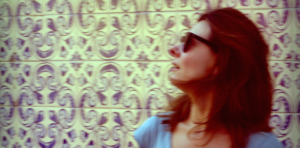Visual Diary is an online magazine founded and edited by Chiara Rubessi. Over the years, Visual Diary has evolved its format, becoming a platform for reflection and discussion related to my work as a researcher and designer. Launched in 2010 as a repository, Visual Diary has since expanded its content and now operates as a visual platform within the fields of design, heritage, and the arts.”
Chiara Rubessi (PhD) is an designer and lecturer specializing in Design History and Culture, affiliated with the CINESTHEA laboratory at UGA-Université Grenoble Alpes and the CEREFREA center (Regional Francophone Center for Advanced Research in Social Sciences) at the University of Bucharest.
She earned her PhD in Arts and Humanities from UGA-Université Grenoble Alpes, following studies at the University of Pavia (Master’s Degree in Cinema Studies [1] Laurea Lettere Moderne, Facoltà di Lettere e Filosofia) and later honed her expertise in Exhibition Design at the Politecnico di Milano. Her professional focus spans the design of exhibition spaces for temporary shows and cultural events, integrating both physical and digital contexts.
Rubessi’s academic career is marked by an extensive range of international teaching and research collaborations. She has contributed to programs at national and international institutions, including Université Jean Monnet in Saint-Étienne, Université de Lorraine in Nancy, Esdac in Aix-en-Provence, LISAA-School of Design in Strasbourg, and Ensba in Lyon. In Italy, she has worked with leading universities and design schools such as Politecnico di Milano, Università Telematica eCampus-Novedrate, POLI.design, Ca’ Foscari University of Venice, IED Florence, Accademia di Brera, and ISIA in Florence and Rome. Many of these collaborations are ongoing, while others are integral to her rich academic and professional background.
Her research is rooted in design, cultural and visual studies, exploring the transformation of space through an interdisciplinary lens. She examines the intersection of urban environments, cultural heritage (both tangible and intangible), museum spaces and digital landscapes. Additionally, her work incorporates insights from design history, gender studies and maintenance studies, enriching her analysis of how spaces are produced and maintained over time. Her approach, informed by science and technology studies (STS), focuses on understanding how spaces are aesthetically constructed and how they shape, and are shaped by, social practices, technologies and human experiences. She also investigates the evolving relationship between space and territory, particularly within the frameworks of ecological transitions, social policies and policies of care and maintenance. This includes a critical reflection on how spaces are not only created, but maintained, preserved and inhabited, considering the often overlooked work involved in sustaining cultural and urban environments.
In 2023, Rubessi co-founded ONExhibit (https://onexhibitedu.wordpress.com/) with Marco Borsotti, an international platform dedicated to fostering dialogue on exhibition design and its role in enhancing both tangible and intangible heritage. This initiative serves as a hub for critical reflections and innovative projects, fostering interdisciplinary collaboration between the fields of design and culture.
Her recent academic activities include a visiting research position at Université Jean Monnet (Saint-Étienne) in 2022, where she contributed to the Erasmus Mundus Master’s program DYCLAM+ by leading a co-creation workshop titled Exhibition Design and Heritage: Knowledge, Narration, and Mediation.
In 2019, she co-organized the international conference DEA-Design d’Espace/Allestimento/Exhibition Design at Université Paris 8 (ENSA-Paris Malaquais), which explored the evolving discourse and practice of spatial design as a powerful tool for communication, immersion, and the architectural representation of cultural narratives.
In 2024, Rubessi joined the working group Emerging Technology in the Media: The Case of Generative AI, supported by CAIS – Research for the Digital Age (Bochum), exploring the implications of generative AI in media contexts. This initiative highlights her commitment to addressing contemporary technological challenges through a critical design lens.
Overall, Rubessi’s work combines design practice, academic research and cultural criticism in the study of spatial transformation, exhibition design and heritage. Rubessi’s scholarly contributions include numerous presentations at national and international conferences, as well as publications in leading academic journals.
I am always interested in hearing about and sharing new ideas, in both academic and business contexts. If you have a project or opportunity for collaboration you’d like to discuss, or if you just want a friendly chat, feel free to drop me a line: chiara.23[at]alice.it
[1] Majors: History of Modern Art, History of Contemporary Art, History and Criticism of Cinema, Theatre History (History of Greek and Latin Theater), Aesthetics, Italian Literature. Minors: History of Philosophy, Romance Philology, History of the Italian Language, Medieval History, Contemporary History, Latin Literature, Geography, Pedagogy, Social Psychology, Archival Studies, Bibliography.

